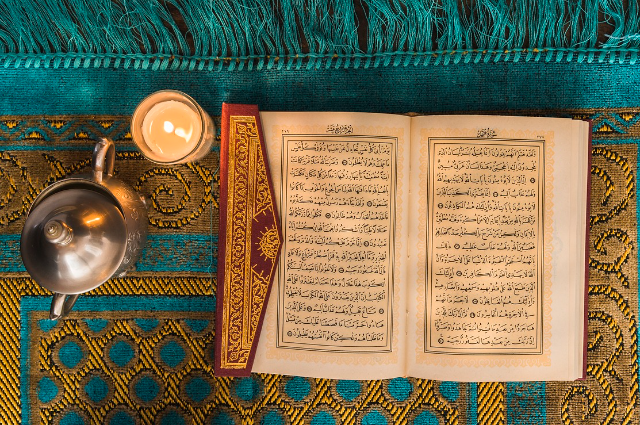
Image by Imen Djerroud from Pixabay
Introduction
The Quran or, is the central religious text of Islam Muslims adhere to the Quran as their divine revelation, meanwhile according this is word of God (Allah) which was revealed on Prophet Muhammad starting from around 609 A.D until his death in 632 A.D. The Quran is a mystic philosophy crafted in the Arabic language and encompasses 114 chapters known as surahs of diverse lengths supposed to serve all aspects of human living, law, ethics or even personal dispositions.
Structure and Content
The Quran consists of 114 chapters (surah’s) each divided into verses and the smallest chapter number is sometimes one verse long, two verses in other cases. The chapters are named for something in the general sense of events, themes or topics mostly related to that chapter.
For everything under the sun from:
- Theology: The Quran focuses on Taw heed (Oneness of God) and it acts as guidance for Muslims in every sphere of life.
- Moral and ethics: The Quran lays down various matters as moral, permitting a numbered few of argumentation.
- Law and Jurisprudence: The Quran is the principal source of law for flagitious living in which a social system can be built.
- Eschatology: Not much different from the Bible, long descriptions of Paradise and Hell are provided in the Quran explaining why Judgment Day is the most important day.
Miracles in Language and Linguistics
It is written in the Classical Arabic language and admired by Muslims to be one of the most perfect & beautiful form of Urdu language. The one defining trait of the Quran that sets it apart from all other works is its language – concise, poetic prose filled with rhetorical devices and metaphors. Muslims understand that the Quran is inimitable — a unique literary miracle (i'jaz) whose Arabic linguistics are beyond human ability to produce. The Quran even challenges the readers of this revelation to bring a simile chapter:"And if you are in doubt concerning that, which We have sent down (i.e., the Qur'ân) upon Our Slave [Muhammad], then produce a surah (chapter) of the like thereof and call your witnesses besides Allah, if you are truthful." (Quran 2:23)
This faith in linguistic miracle defined the divinity of Qur'an and hence served as a proof for Muhammed's prophet hood.
Revelation and Compilation
Muslims consider Muhammad to be the prophet whom, for approximately 23 years before his death in CE 632, god had been bypassing messages through the Archangel Gabriel (Jibril), these announcements being codified after cautious reflection and comment into a volume called The Quran. They were first remembered by the Prophet's companions and then one book was published during Caliph ‘Uthman ibn Afghan ( 644-656 AD). The Quran is usually identical in both shape and content. All versions of the Quran are paraphrases, to enable more people understand what the original Qurans in Arabic say and fulfil many Islamic historical prediction that God will preserve his word.
Significance and Impact
The Quran is the most significant writing in Islam that has drastically impacted the religion, culture and civilization of Muslim World. It is the basis of Islamic law and forms an important part in many disciplines such as theology, philosophy, mysticism and jurisprudence. The Quran contains a verse regarding the obligation of acquiring knowledge and understanding, which has widely effected in spreading science, scholarship and education within Islamic societies. Some Islamic scholars have read this ayat as urging Muslims to explore the natural world and use reason, ideals which they believe play into a narrative of scientific pursuit found in other verses throughout the Quran.
Conclusion
The Quran […] came to be a point of departure for classic Islamic civilisation such that it shaped not only religious belief but also social practice: even cultural, law and scientific views; the basis upon which societies are laid. The text itself remains a source for reflection and dialogue on the relation of faith to knowledge in today's era. This triple focus on a unique absolute god, the importance of ethical values and knowledge acquisition have made the Qur'an an integral part of Muslim identity and God-inspired articulation for appeal to moral conscience uniting Muslims worldwide.
